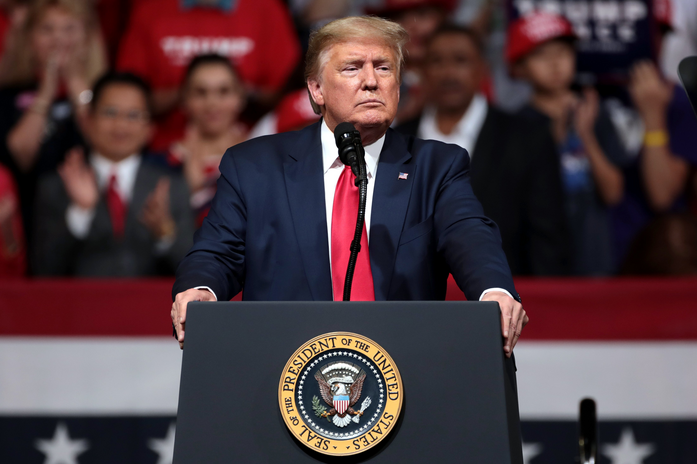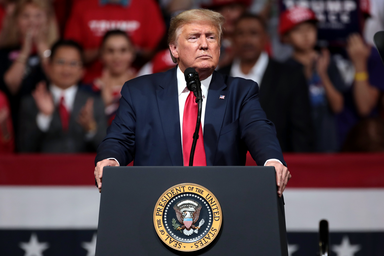Donald Trump is known for his nonsensical, hot-button rants that divide the country and strengthen the support of his base. He consistently “invents facts” and includes irrelevant information in his rebuttals and speeches,ultimately taking focus off his lack of political potential. He is the physical embodiment of the red herring and his misdirection and rampant spreading of misinformation is harming the country in a long-lasting manner. The Red Herring Fallacy is defined as an attempt to shift focus from the topic at hand by bringing up irrelevant points in order to win the argument.
In his most recent debate against Vice President Harris, in response to questions about the economy, Trump claimed that other countries are emptying their “insane asylums” and “mental institutions” into the United States – a claim of his that has routinely been proven false. Of the 3 million illegal immigrants offered protection in the United States during 2022, 1.6 million were asylum seekers due to instability in their home countries, according to Pew Research Center. His conflation has created a misrepresentation of the original argument against asylum seekers and instead shifted the narrative into one where they are seen as criminals and mentally deranged instead of the survivors of hardship that they are. In doing so, he also does not answer the question asked, instead answering one he created. Not only does this not allow us to make an informed decision on his policy – or lack of one – it also causes his opponent to waste their time attacking Trump’s irrelevant points, further derailing the debate.
When asked about a bill that would place more border protection agents along the United States Mexico border, he presented the now viral illegitimate claim: “They are eating the cats, they are eating the dogs,” in reference to Haitian immigrants living in Springfield, Ohio. Here, he completely shifts focus from not only the question at hand but the entire debate. For weeks to come, this quote would be the most talked about portion of the debate. This claim was originally made by his running-mate JD Vance at a rally six days prior, however, Trump largely popularized it on the debate stage. This claim is baseless as Springfield officials and police report that there has been no consumption of stolen dogs or cats. Moderator David Muir pressed the former president about this statement; he said that he had seen it on TV and implied that the city manager of Springfeild was lying. Vance has also admitted to being aware this claim “may be false”, but is still urging his followers to continue spreading this rumor. In this section of the debate, Trump still does not present his policy proposals for immigration.
When asked about his personal views on abortion, he alleges that “after-birth abortions” were being performed in West-Virginia. He also claimed that Tim Walz was a proponent of after birth-executions and abortions in the ninth month. Again, dodging the question and creating false claims in order to sway reporters. The moderators attempted to direct him to respond to the question in which case he opted to answer that the states will decide, again not responding to the original question. By derailing the line of questions and making irrelevant claims, Trump shifts focus from his personal values to the demonization of women who are seeking medical care.
Throughout this debate, Trump managed to avoid answering a majority of the questions, and only when pressed upon multiple times were moderators able to get on-topic answers. A vote for him is a vote for his lack of clear policy proposals, lies, and attempts to further divide our country.



